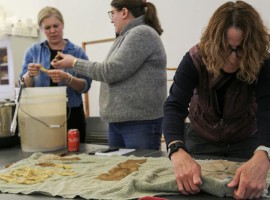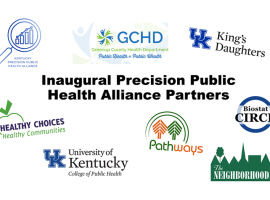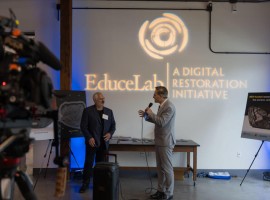UK Superfund Research Student Maggie Murphy
Research conducted by Maggie Murphy, a fourth-year Ph.D. student under Bernhard Hennig, director of the University of Kentucky Superfund Research Program (UK-SRP), has shown that PCBs can induce atherosclerosis, a leading cause of cardiovascular disease. PCBs (polychlorinated biphenyls)—a class of hazardous chemicals used in coatings for electronics, sealants, adhesives, paint, and flame retardants—were banned in the 1970s but these toxic compounds continue to linger in groundwater and soil.
Murphy’s cell-culture and whole-animal research shows that antioxidants can prevent PCB-induced signaling which leads to inflammation, and ultimately atherosclerosis.
Her next step: exploring lifestyle changes such as running as a therapy for PCB exposure. An avid marathoner, Murphy enjoys being able to combine her love of running and her passion for research in her quest to see if exercise is a therapeutic treatment against chemical insults.
Kentucky has more than 200 hazardous waste sites on the active list for control, cleanup or monitoring under the federal Superfund program. One such site is the Paducah Gaseous Diffusion Plant, the only operating uranium-enrichment plant in the United States and one of the top 14 sites on the EPA’s national priority list.
UK-SRP research efforts focus on the idea that nutrition can positively impact human health and disease outcomes related to chemical exposure near Superfund sites. The program focuses on health impacts of exposure to PCBs and trichloroethylene (TCE), both of which are prevalent at Superfund sites in Kentucky and around the world.





